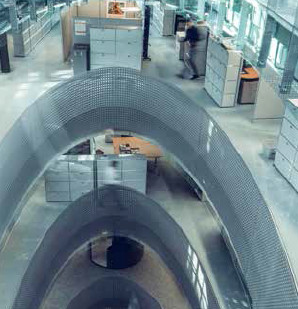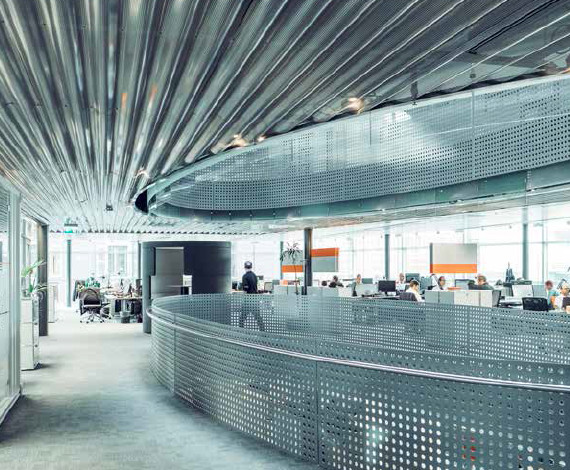Published: Monday August 14 2017Geneva-based SGS provides teams of experts to help businesses become faster, simpler and more efficient, ensuring compliance with fast-evolving global standards and local regulations that protect customers and consumers.In the early days of SGS, the company specialised in inspecting shipments of grain arriving in large French ports from elsewhere in Europe, North America and further afield. Its network of inspectors would verify the quantity and quality of the grain which tended to shrink in volume during transit, especially on loading and unloading.From its launch in 1878, the company grew fast: by 1913, it was inspecting 21 million tonnes of grain a year from a network of 45 offices throughout Europe and had become the leader in the grain inspection
Topics:
Perspectives Pictet considers the following as important: Cyber security, Data verification, In Conversation With, Pictet Report, Pictet Report Summer 2017, SGS
This could be interesting, too:
investrends.ch writes SGS überrascht mit Chefwechsel und neuen Zielen
Perspectives Pictet writes House View, October 2020
Perspectives Pictet writes Weekly View – Reality check
Perspectives Pictet writes Exceptional Swiss hospitality and haute cuisine
Geneva-based SGS provides teams of experts to help businesses become faster, simpler and more efficient, ensuring compliance with fast-evolving global standards and local regulations that protect customers and consumers.
In the early days of SGS, the company specialised in inspecting shipments of grain arriving in large French ports from elsewhere in Europe, North America and further afield. Its network of inspectors would verify the quantity and quality of the grain which tended to shrink in volume during transit, especially on loading and unloading.
From its launch in 1878, the company grew fast: by 1913, it was inspecting 21 million tonnes of grain a year from a network of 45 offices throughout Europe and had become the leader in the grain inspection business. Today, it has become an industry leader in a much wider range of inspection activities, with around 90,000 employees and 2,000 laboratories operating in nearly every country in the world.
The nature of its business has changed considerably over the years, and now covers ten industrial sectors. And in addition to inspecting a wide variety of goods in transit, it tests their quality, safety and performance, verifies that they comply with global standards and local regulations, and certifies them to reassure consumers and other purchasers.
“Our services were initially based on the physical nature of the products that we inspected,“ says Jean-Luc de Buman, Senior Vice-President of Corporate Communications, Investor Relations and Corporate Development. “That is still part of our work, but we have moved from physical activity to knowledge-based expertise from blue-collar to white-collar work that covers the entire supply chain from raw materials to final consumption.”
A banker for 20 years, Jean-Luc de Buman joined SGS in August 1998 when it was still mainly focused on inspection, effectively acting as a customs office for countries which had no customs services of their own. It would value export goods at the port of departure so that the importing country could levy the right amount of import duty.
However, he found out within three months that SGS had lost two large contracts with Indonesia and Pakistan. This resulted in the loss of 90 per cent of its earnings, making the company almost bankrupt. It decided to re-engineer the business. In 2001–02 Baron von Finck, a key shareholder, brought in a new chief executive, Sergio Marchionne, the Italian-Canadian executive who has since become chief executive of Fiat Chrysler.
The central move in reshaping SGS was to move upstream systematically. It kept the import-export trade inspection but started looking at the origins of the goods – seed manufacturers for grain, exploration activities for oil and minerals, design for consumer products. In doing so, it has created the biggest laboratory network in the world which now employs 90,000 people along the supply chain across the globe.

“We have effectively moved from physical activity to laboratories, and the next step will be more data-based consultancy. From our laboratories, we have data on almost everything and conceptually we can make use of it by analysing and interpreting it for customers”.
“Many of those customers are well-known listed businesses – we work for people with cross-border interests who are producing here and selling there. We are an agent of globalisation, working closely with clients to ensure their success. They have thousands of suppliers which must be compliant throughout the supply chain with the requirements of governments, NGOs and consumer organisations, as well as our clients’ values.”
“Regulation is at the centre of our activity, and it is changing all the time. We are well-placed to advise on it because we have been in so many countries for so long and our people follow developments country by country and business by business. We also have access to the technical bodies that draft the regulations: they need to draw on our expertise.”
One of Jean-Luc de Buman’s responsibilities is corporate development, in charge of acquisitions for what is a highly complex business. For example, SGS has recently acquired a company which specialises in molecular biology and DNA sequencing services in the food sector. It has invested in an Industry 4.0 startup, developing solutions for transforming food regulatory compliance. And it adopts the latest machine-learning techniques with the support of Swiss Artificial Intelligence Lab IDSIA.
The skills needed by SGS are constantly evolving, and not easily found in Europe. “We join forces with universities in Asia, mainly in China, and much of the training is done on the job with targets for each employee of required days of training – in some cases, months of it. We are also working with academics much more: in China, 80 per cent of our recruits are now graduates. To be a good auditor on our huge range of activities, we need the very highest quality of training.”
The industries that are most sensitive to regulation and inspection are those where safety is a key requirement. “We sell trust to consumers who lack trust in products such as food, drink and cars. Our role is to give them confidence in the safety of those products.”
The company is a global firm, which aims to provide services all over the world. “We have more growth today in Asia and Africa than in Europe, but our strategic priorities for investment to drive growth are China and North America. Years ago, China was seen as mainly a manufacturer, but today it is also a consumer market. Around half our business there is in domestic activities, in supporting local services for Chinese people.”

Serving large multinational companies involves building deep and diverse relationships with different parts of their business, such as the quality department and the production department. There can be two SGS people waiting to see the customer at the same time, unaware that they are both in the waiting room. “It is a team approach, and we try to bundle services as much as we can.”
“But if we find an instance of non-compliance with standards, we have to say so and tell them to stop. Clients expect us to tell the truth, but sometimes it has financial consequences and the client doesn’t want to hear it. It’s non-negotiable, though: if we don’t say it, our business will be dead.”
For the future, Jean-Luc de Buman sees SGS using tech and data for consultancy and prediction, to serve clients better. The company will also have to adapt to digitisation as a different way to deliver the service: inspectors used to submit written reports, but the group must now report online and as events unfold. The challenge for the company will be to retain the opportunity to explain and interpret the data and its consequences.
“Even if technology appears to remove the need for independent verification, there is still a role for giving external assurance to the public. Many industries are setting up online platforms which make decisions on procurement of supplies based on information the suppliers provide.”
But someone should independently verify the process by which the plat-form makes the decision.
“In ten years we will continue to inspect grain and containers, we will continue to inspect cargoes. Sensors and drones may replace the eyes of physical inspectors where they are quicker and more efficient. And the service may move online. But independent verification and certification are still essential.”
